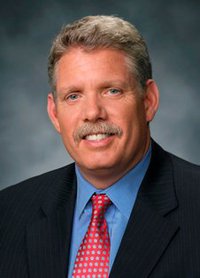Best Buy CEO Brian Dunn resigns; tech retailer seeks new strategies


"There were no disagreements between Mr. Dunn and the company on any matter relating to operations, financial controls, policies or procedures. There was mutual agreement that it was time for new leadership to address the challenges that face the company," according to the company's official statement.
G. Mike Mikan will serve as interim CEO while a search for a new CEO is underway. A Best Buy director since April 2008, Mikan brings a load of financial and operational expertise to the top position. He was formerly CFO of UnitedHealth Group and CEO of healthcare services company Optum.
Best Buy founder Richard Schulze will keep his role as chairman.
“I have enjoyed every one of my 28 years with this company, and I leave it today in position for a strong future," Dunn said. "I am proud of my fellow employees and I wish them the best."
Given the severity of the change, we can only wonder when both sides came to the realization that the ship was sinking. The good news: at least no one's in denial anymore. With the company shuttering 50 stores -- no doubt due to Amazon's continued dominance online -- it appears that Dunn simply couldn't hack it in e-commerce, or at least in balancing multiple channels.
It's a real shame -- Dunn's a 26-year veteran of the company, starting at the bottom as a sales associate in 1985 and rising through the managerial ranks over the years. If there's someone at Best Buy who's seen the company's rise, it's Dunn.
But that may be the exact problem. The landscape of technology retail has changed rapidly and drastically, and it's hard for anyone to hang on when the winds of change are this fierce. It would be in Best Buy's best interest, then, to hire a veteran of the e-commerce sector -- an Amazon, eBay or Apple alum would do well here.
Dunn wrote in a blog post in January (the original has been removed):
First, some believe the internet has made physical retailing (i.e., stores) irrelevant. There’s no doubt that the internet, and the mobile web in particular, have changed the way people shop, but there is strong evidence that consumers continue to value the experience of shopping in stores. A recent study by the NPD Group, a leading market research company, notes that nearly 80% of consumer electronics revenue still moves through physical stores. Additionally, approximately 40% of customer purchases made through Bestbuy.com are picked up in one of our stores. And the truth is, traffic in our physical stores increased in our third quarter and has been trending positively for most of the year.
Finally, there are those who question the validity of Best Buy’s business model. This misguided perspective is especially troubling for me, because it blatantly and recklessly ignores overwhelming evidence to the contrary. Best Buy is a financially strong and profitable company that has generated more than $2.6 billion in cash flows from operating activities in the first three quarters of the fiscal year. We also delivered positive operating income in each of the first three quarters of fiscal 2012. We grew total market share in the third quarter according to the most recent public data available. We have closed down certain operations that were not profitable, which we expect to have a positive impact on our earnings going forward. And we are focusing the company on areas where we see the greatest opportunities for growth and profit: mobile devices and connection plans; enhanced digital and e-commerce strategies; growth in our services business; and expansion of our established business in China.
Dunn is right, at least in principle. For all the talk of how Amazon is eating Best Buy's lunch, the game isn't quite the same -- Amazon's primary platform is the web, whereas Best Buy's remains its stores. Apple has shown the world that the brick-and-mortar store, done right, can be an effective tool.
But you could argue that Best Buy wasn't walking the talk, positioning its stores as blue-and-yellow distribution centers, rather than experiences. Sure, the cash continues to flow, but its sources are weakening, and the company is not taking strides to find and tap the next revenue well. In its search for a new CEO, then, Best Buy's board needs to find someone who knows the value of each platform and can knit them together seamlessly.